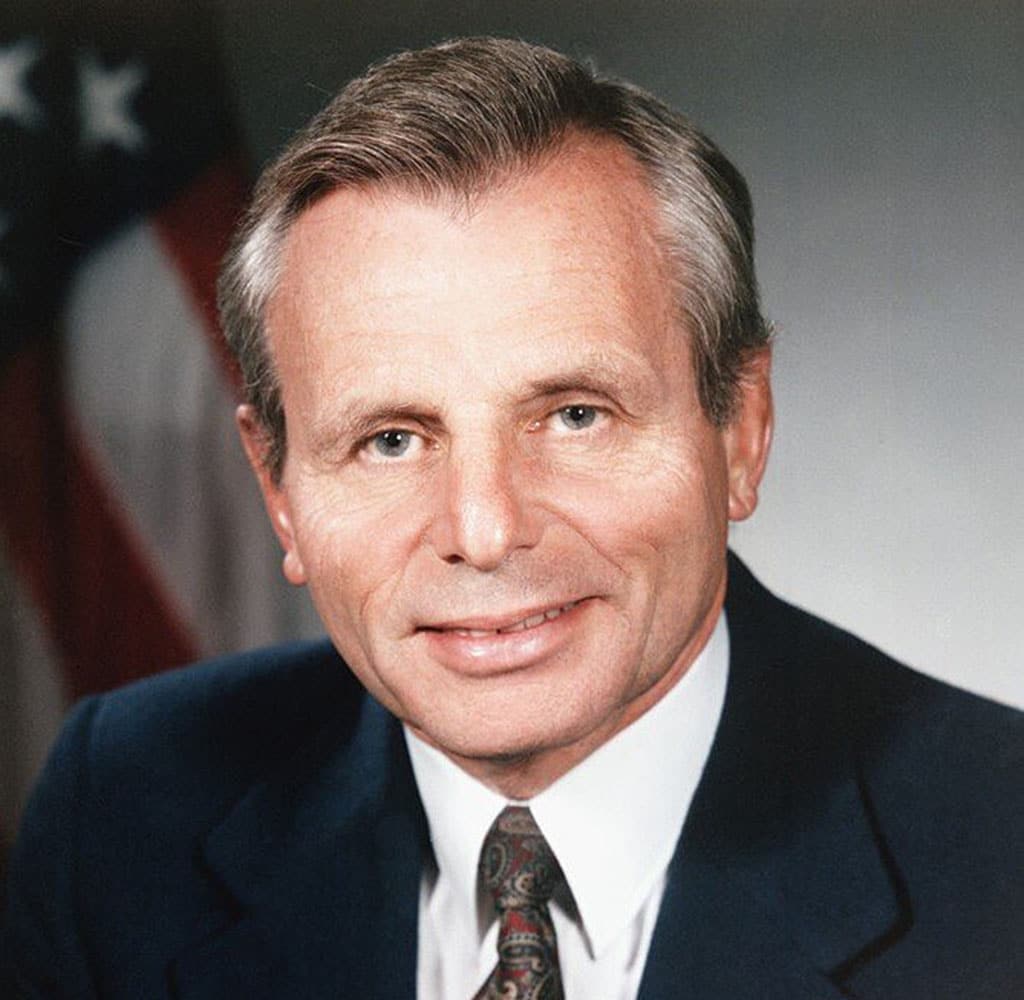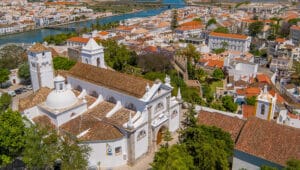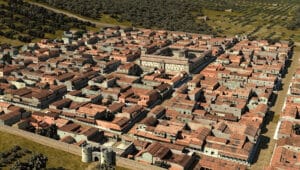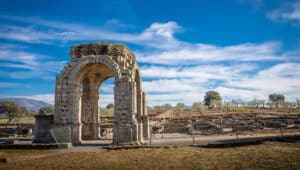Accounts of the Revolution rightly stress the outstanding roles played by: Captain Salgueiro Maia; General António Spínola, General Francisco da Costa Gomes; General Ramalho Eanes; Mário Soares. Some point out the difficulties posed by the different priorities of Major Otelo de Carvalho, or Álvaro Cunhal. But very few say anything at all about perhaps the most influential person of all in post-revolutionary politics, the United States Ambassador, Frank Carlucci III.
1974
Nor does a single view of history put together the manifold difficulties facing the world at that time. In the middle of the Cold War, the oil crisis of 1973 continued its effect; the US was facing defeat in the long Vietnam war; the Yom Kippur war of 1973 and the Palestine emergency demanded attention; and Turkey chose June of 1974 to invade Northern Cyprus. US involvement continued in the Chilean coup d’état (September 1973) and Argentina’s Dirty War. More than one account of the Carnation Revolution suggests that it came as a shock as the US political system approached the end of the Watergate Crisis and President Nixon resigned on August 9, 1974. At the time, the USA certainly had other weighty matters to consider.
Frank Carlucci III
Carlucci was appointed US Ambassador to Portugal in December 1974, and he was superseded in 1978. He gave an interview to the Portuguese newspaper Expresso in 2015, three years before he died. In this interview, despite the onset of Parkinson’s disease, his memory seemed as sharp as ever. He maintained that his predecessor as Ambassador, Stuart Nash Scott, had had disagreements with the US Secretary of State and National Security Advisor Henry Kissinger over the likelihood of a communist takeover in Portugal. His friendship with Donald Rumsfeld was instrumental in helping him to achieve his aims, since he opened access to the President. His appointment to Portugal was an inspired choice, and the Portuguese have reason to be thankful for his interventions. He admitted that before coming to Portugal, he knew nothing of the country, but he read widely.
Portugal in NATO
It is certain that nobody in the USA or in NATO foresaw the fall of the Caetano regime. Portugal was a small, orderly country in western Europe, equivalent in size of population to Michigan, the 10th largest of the United States. Portugal had been a founder member of the NATO alliance in 1949, the only dictatorship among 11 democracies, and the reason for its inclusion was undoubtedly the importance of its air base in the Azores. While President Nixon appreciated the use of the Lajes air base during the Middle East War, Kissinger was convinced that Portugal would become communist and, therefore, a Trojan Horse in the alliance. If Portugal had chosen communism, perhaps Spain might have taken a different political direction after the death of Franco, followed by Italy in a domino effect.
Kissinger’s preferred alternative was to isolate Portugal within the alliance, but Carlucci maintained that such an approach would be counterproductive. In fact, NATO had an important role in the political evolution in Portugal. At NATO headquarters in Brussels, Carlucci planned to finance a Portuguese military brigade, and persuaded Congress in the US to provide funds and equipment. The plan was to return the Portuguese army to professional standards, such that troops would not be involved in politics.
Carlucci’s view was that the armed forces with the right equipment and with a clear understanding of their role, which was to protect NATO’s southern flank, would behave professionally and would return to their barracks. By the end of 1975, new equipment was arriving for the army; later a frigate arrived for the navy; and after 1978, aircraft for the air force. And the armed forces did indeed return to barracks.
Spanish Invasion
During 1974, the US applied pressure to Spain to invade Portugal in order to prevent a communist takeover. Carlucci was tireless in his efforts to dissuade Secretary of State Kissinger from this course of action. Both he and his colleague ambassador in Madrid were certain that such an invasion would be disastrous for both countries. He never knew if Kissinger took any notice of his advice, but the invasion never happened.
Choice of Portugal’s leader
Carlucci had long discussions with Vasco Gonçalves, the Prime Minister of four of the Provisional Governments, but never understood his plan of action. Such conversations with the US ambassador covering political philosophy were unusual, but as Gonçalves hid nothing, it was clear to Carlucci that he sympathized with the USSR and was probably a communist. When Gonçalves visited Washington in July 1975, it became clear to US leaders that they should support an alternative, non-communist leader for Portugal.
Mário Soares, on the other hand, was a leader of courage and integrity, with the biggest party (PS). Having experienced communism in France, he took a strong line and was not afraid to confront communist demonstrators in the street. Carlucci thought that the socialists (PS) were the party with the best hope of restoring democracy in Portugal. Both Carlucci and Soares were convinced that the PS would win the election. He also believed that the three democratic parties (the PS, PSD and PPD) should work together to defeat the communist threat. It was Carlucci’s unwavering support for Soares both in Portugal and in the US which enabled the democratic parties to emerge victorious from the electoral contests of 1975 and 1976.
Álvaro Cunhal
The Secretary General of the PCP (Portuguese Communist Party) was Álvaro Cunhal. He had spent years outside Portugal, and had become both a hard-line Stalinist and remote from his Portuguese roots. On the day of his television debate with Mário Soares (November 6, 1975), he appeared bound by the communist rule-book, while Soares appeared persuasive, enthusiastic and approachable. This debate had a major influence on the outcome of the subsequent elections. Carlucci reflected that if Cunhal had adopted a softer line, he might well have won.
Carlucci’s safety in Portugal
Mário Soares thought that Carlucci would be at risk of overt anti-Americanism in Lisbon, and, after March 11, 1975, Otelo advised him to leave the country. Carlucci replied that he did not have the authority to ask the US ambassador to leave; that was the job of the government, whereas Otelo’s job was to provide protection to the US ambassador. Carlucci gave his home address, and Otelo sent an army detachment to his house. It remained in position for a year because there were protests every week outside his house.
Although he was very unpopular with the communists, Carlucci never felt that his own personal safety was at risk. On his first night in Portugal, demonstrators protested in front of the American Embassy. Wearing his tennis kit, he emerged in his old American car. Some of the demonstrators complimented him, and he continued homewards. During his time in Portugal, demonstrators stopped his car only once, in Praça Marquês de Pombal, and stoned it, but he said it was not serious.
Carlucci’s actions
Carlucci persuaded the US government to back a democratic solution through Mário Soares; he persuaded NATO that Portugal would not become communist; he secured an American investment in the armed forces which ensured their cooperation.
Portugal today
In retrospect, Frank Carlucci was proud of his achievement. He declared that nobody nowadays thinks of Portugal as unstable and the consolidation of the Portuguese democracy as an enormous success. Carlucci went on to say that Portugal had had a traumatic experience and had achieved a level of political maturity which is characteristic of the Portuguese people, conservative, intelligent and fatalist but committed to democracy. And without the support of Frank Carlucci when it mattered, it may be that the history of democracy in Portugal today would be completely different.
By Peter Booker
|| features@portugalresident.com
Peter Booker co-founded with his wife Lynne the Algarve History Association.
www.algarvehistoryassociation.com



















